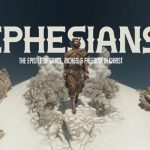The omniscience of God means that He is all-knowing. God knows all that exists and all that will come to pass. His knowledge is infinite (1 John 3:20, Ps. 147:5). He knows the large and the small details of all things. His knowledge has no limits, unlike our erroneous and flawed intellect.
Nothing surprises God or catches Him off guard. He has complete knowledge of Himself (1 Cor. 2:10) and of all the created order. There is no unknown truth for God. Everything that is true was made true by His sovereign Power. Nothing escapes the domain of His knowledge. He knows not only how the solar system works, He also knows the sins and the very basic needs of His people.
Each person of the Trinity is perfectly omniscient. God does not need to learn anything. When we pray and communicate our requests to Him, we do not add anything to His knowledge.
Some people have argued that certain passages indicate that God has incomplete knowledge. For instance, God is described as traveling down to Sodom and Gomorrah to see whether their sin is indeed great (Gen. 18:20-21). Is God really shown as ignorant in these verses?
Let us examine these verses carefully. John Frame explains these verses to mean that God was not saying He did not know the actions of the men in Sodom. When He said that He would “go down to see,” He meant that “He is gathering facts for an indictment, preparing the wicked cities of Sodom and Gomorrah for judgment.” God knows everything because He has ordained everything according to His purpose and will. Reality exists because God has ordained all things the way they are, which is why He knows all of the intricacies of everything.
Some might see that God has all knowledge and ask about the passage in which God says “I will remember their sins and their lawless deeds no more” (Heb. 10:17). In this verse, God is using hyperbolic and anthropomorphic language to tell us that He is a merciful God. He has blotted out the iniquity of His people, which is a comforting truth. This is an extreme statement to say that God will not remember the sins of His people. Yet that very verse depicts to us the intensity and profundity of His lovingkindness.
The omniscience of God is also a convicting truth for us. We should feel the conviction of sin when we ponder this Perfection of God. He knows all of our sins, including the sins we want to hide from everyone and which we will not tell anyone about (Ps. 139:2).
This attribute of God should fill us with thankfulness, conviction, and awe. We should all say with Paul: “Oh, the depth of the riches and wisdom and knowledge of God! How unsearchable are his judgments and how inscrutable his ways! ‘For who has known the mind of the Lord, or who has been his counselor?’ ‘Or who has given a gift to him that He might be repaid?’ For from him and through him and to him are all things. To him be glory forever. Amen” (Rom. 11:33-36).






